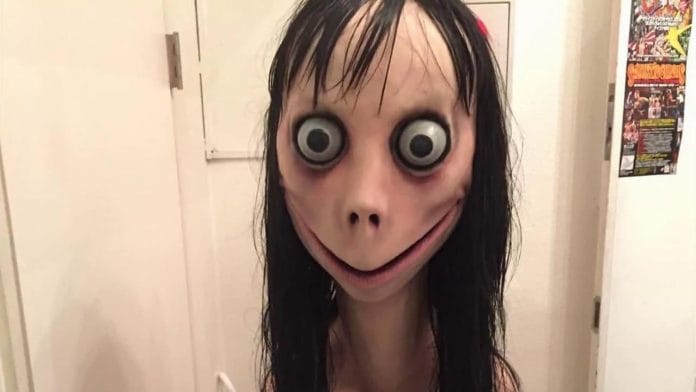The game played on social media has claimed three lives in India so far; govt issues advisory asking parents to monitor their children’s behaviour.
New Delhi: After the deadly ‘Blue Whale’, it’s the Momo Challenge that India should be worried about. The game played on social media has reportedly claimed three lives in the country so far.
The first incident was reported from Rajasthan where a Class X student had allegedly committed suicide on 31 July, three days after her birthday. Police after accessing her mobile browsing history found links to Momo Challenge.
The other two incidents have been reported from north Bengal in mid-August. Manish Sarki, a school student from Kurseong, was found dead in an animal shelter with ‘Illuminati’ and ‘Devil’s one eye’ scribbled on the wall, on 20 August. The next day, another incident took place in the same hill station, where 26-old-year Aditi Goyal had committed suicide.
What is Momo Challenge?
The challenge is believed to have started on Facebook, where participants were asked to contact an unknown number. It is learnt that the link of the game was being circulated through WhatsApp. After the first stage of contact on WhatsApp, the challengers were sent a series of activities to be done in order to meet ‘Momo’.
The challenge allegedly first forces an individual to commit certain violent activities and gradually drives him/her to suicide.
Also read: Why Kiki challenge is such a big hit with Indian farmers and older women
It is assumed that the operators of this dangerous game are based out of Columbia, Mexico and Japan.
However, it is unclear that what the ‘Momo’ stands for. The operators running the ‘Momo’ accounts on social media used the image of a doll with a distorted face and bulging eyes.
The image is believed to have been inspired by a Japanese artwork by Midori Hayashi.
When it started
The challenge came to notice after Buenos Aires Times reported earlier this month that a 12-year-old girl had committed suicide and also filmed her activities before doing so. According to the report, police suspected that the girl was encouraged to take the extreme step by someone and that they are looking for the person with whom she had shared messages.
Why India should worry
This is not the first time that India has faced such a deadly challenge. Last year, the Blue Whale game had driven a number of teenagers to indulge in violent activities, claiming five lives.
Now, the threat of the Momo Challenge looms large as three deaths linked to this deadly social network phenomenon have already reported from India.
In the wake of the two deaths in Kurseong, the West Bengal government has issued directives asking the police and educational institutions to keep an eye on such challenges as well as the behavior of children.
Also read: Why restricting social media is not a solution to dangerous behaviour in India
The ministry of electronics & IT has also issued an advisory, urging parents to “guard their children from any potential danger’.
According to mental health experts, excessive use of smartphones and internet can be linked to addiction to such deadly games.
“During adolescence, there is always a thirst to construct an identity different from everyone. In the quest to achieve that, teenagers could be drawn to such deadly challenges,” said Kolkata-based psychologist Mohar Mala Chatterjee.






